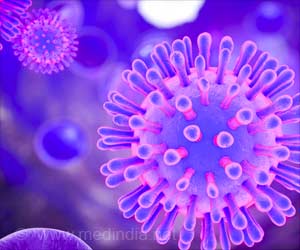Study findings show the way forward in constructing vaccines with a greater likelihood of finding and attacking cancer.
- A novel cancer vaccine strategy blocks death of tumor-specific cytotoxic cells called killer T cells (a type of white blood cells that kills cancer).
- The key point of the strategy is increasing the amount of time a cytokine responsible for regulating killer T cells stays in the body.
- The novel vaccine also increased the T cells' ability to resist cancer immune evasion.
Using the Body's Immune System to Fight Cancer
The lead scientists Drs. Esteban Celis and Hussein Sultan state that the key to the novel cancer fighting vaccine is the amount of time a certain cytokine stays in the body. The vaccine strategy works on the premise of increasing the duration for which a cytokine known as interleukin (IL2) stays in the body. The molecule IL2 is released by the immune system that regulates the activity of killer T cells."After administering peptide-based vaccines in mouse models of cancer, we saw that sustained IL2 signaling dramatically increased the number of tumor-specific cancer-killing T cells (CD8+)," said Dr. Hussein Sultan, a postdoctoral fellow in the laboratory of Celis, leader of the Center's Cancer Immunology, Inflammation and Tolerance Program.
Moreover, the peptide-based vaccines increased the ability of the T cells to resist cancer immune evasion that was made possible by a protein known as programmed death-ligand 1 (PD-L1).
PD-L1 is a protein that is produced by tumor cells which allows them to evade destruction by the killer T cells.
The two findings show that peptide-based vaccines substantially improved the anti-tumor efficacy in tumor-bearing mice.
Interleukin 2: The secret key
"In order to be effective, IL2 needed to be administered either as a complex of IL2 and anti-IL2 antibody, or in the form of polyethylene glycol-modified IL2 (PEG-IL-2). These formulations prolonged the half-life of IL2, allowing sustained activation of the IL2 receptor on vaccine-generated T cells, allowing them to survive longer in the body and attack the tumor." Celis said.Why Cancer Vaccine Efficacy Is Low
Cancer cells are created when our normal cells undergo a mutation. This means that cancer cells are most often than not similar to healthy cells. The fact that most tumor antigens are not foreign proteins makes it difficult for vaccines to induce antibodies against tumors. Moreover, T cells are trained to only recognize and destroy foreign antigens.The team hopes that the study findings will help them find their way into clinical studies with human cancer patients.
Reference:
- Hussein Sultan, Takumi Kumai, Valentyna I. Fesenkova, Aaron E. Fan, Juan Wu, Hyun-Il Cho, Hiroya Kobayashi, Yasuaki Harabuchi, Esteban Celis. "Sustained Persistence of IL2 Signaling Enhances the Antitumor Effect of Peptide Vaccines through T-cell Expansion and Preventing PD-1 Inhibition". Cancer Immunology Research, (2018); 6 (5): 617 DOI: 10.1158/2326-6066.CIR-17-0549
Source-Medindia
















